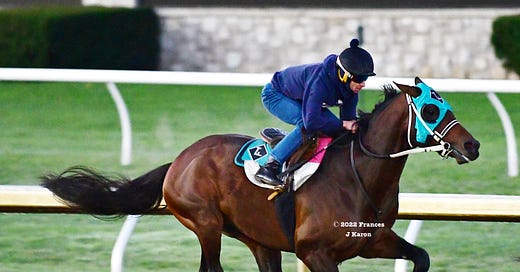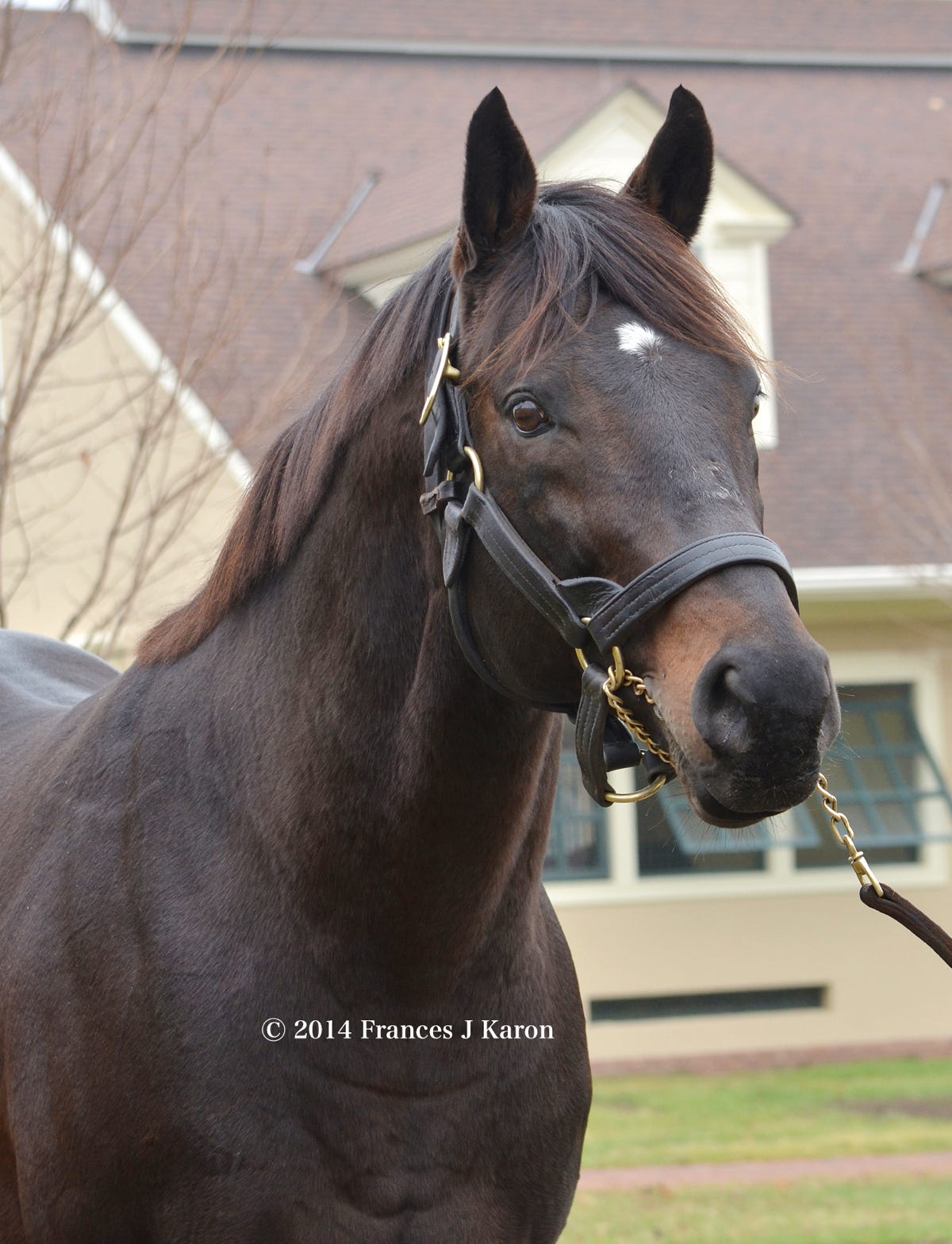Joey Peacock waiting for Senor Buscador stud offers
Son of Mineshaft has had zero interest from Kentucky farms so far
By Sid Fernando
After my column “Sire line detours” came out this week, Joey Peacock Jr., the co-breeder and sole owner of G1 Saudi Cup winner Senor Buscador, contacted me to discuss his horse’s stud prospects. The 6-year-old son of Mineshaft and the Desert God mare Rose’s Desert had just won the most valuable race in the world last weekend, and Peacock, naturally, was thinking down the road to next year when the horse will go to stud.
Peacock was back home in San Antonio after the trip to Riyadh, and he was still trying to process the magnitude of the win when we spoke this morning about the horse’s future.
Has he had any Kentucky interest yet? “No,” he said quickly. “I’ve had zero interest. Well, I take that back. I have had one call from a regional interest.”
SENOR BUSCADOR (2018 Mineshaft – Rose’s Desert by Desert God)
B: Joe R. Peacock Sr. and Joe R. Peacock Jr.
O: Joe R. Peacock Jr.
T: Todd Fincher
Record: 18-7-2-2, $11,496,427
Highest achievement: Grade 1 winner
Peacock, who bred Senor Buscador with his late father, was intrigued by the notion I’d written about, that sire-line sequences can sometimes have a “weaker” sire in a chain, and that that’s not necessarily a bad thing. In the case of Senor Buscador, the weak link would be his sire Mineshaft, a Horse of the Year son of A.P. Indy who’s had a solid career but not an exceptional one like his own sire and grandsire, Seattle Slew. Nevertheless, Mineshaft does have a useful sire son in Darby Dan’s Dialed In.
Aside from his sire, Senor Buscador’s age works against him, as he’ll be seven if he goes to stud next year. That’s too old for most commercial Kentucky stud farms, although there have been exceptions, of course. A notable one off the top of the head is Speightstown, who was seven when he covered his first mares.
Speightstown, like Senor Buscador, didn’t win his first Grade 1 race until he was six, and his career was marked by a notable gap on his resume—he didn’t race as a 4-year-old—due to injury.
Senor Buscador has a similar gap in his career. He didn’t race after a fifth-place finish in the G2 Risen Star in February of his 3-year-old season until July as a 4-year-old. “He had a chipped ankle when he ran in the Risen Star, and we just didn’t know about it. So, he’s had some physical setbacks and some bad luck. But there’s been a lot of comment about Senor Buscador being a late bloomer and all that, and that’s not true. I mean, hell, he had the fastest two-turn dirt Beyer for 2-year-olds when he won the Springboard Mile.”
In that regard, he has an edge on Speightstown, who was last of 13 as the favorite in his lone start at two. Senor Buscador meanwhile won both his starts as a juvenile, including the aforementioned Springboard Mile at Remington by 5 3/4 lengths.
Peacock is patient and will let the horse’s accomplishments attract stud attention, but he would like to stand the horse in Kentucky and is a realist who has no illusions that the horse will stand for a lot of money. I suggested $10,000, and Peacock didn’t blink. “I have to go to school,” he said, “as I’ve never stood a horse in Kentucky. I’ve never been in this position before. We’ve never had a stud in Kentucky, so I have some work to do to figure out how those deals are structured.” But he is prepared to support the horse. At the moment, he owns three mares—all at Shawhan Place—and has four in training, all of them with trainer Todd Fincher, but Peacock said he would buy some mares to breed to Senor Buscador.
Senior Buscador has won seven races from 18 starts and almost $11.5 million, and Peacock’s strong preference is for the horse to get a shot in the Bluegrass region.
Would he sell to, say, Japanese interests? “I wouldn’t be interested in selling the horse for $5 million to go to Japan. It’d have to be over ten. I mean, I don’t know the number, but, honestly, right or wrong, I so believe in this pedigree. I mean, everything the mare’s had has been a stakes winner—and graded winners. And we have more to come [from her]. We got a Candy Ride filly, we have a Hard Spun filly, we have an Authentic colt, and she’s going to deliver an Into Mischief filly this spring and will be bred back to Uncle Mo.”
He was speaking of Senior Buscador’s dam, Rose’s Desert, a New Mexico-bred daughter of the unraced Fappiano stallion Desert God that his father bred and raced with Fincher. She won 10 of 15 starts with five second-place finishes and earned $626,035 racing exclusively at Sunland Park and Zia Park.
As a broodmare, she has made her own pedigree as the dam of four stakes winners. Aside from Senior Buscador, they are the Ghostzapper colt Runaway Ghost, a Grade 3 winner of $783,509; the Curlin gelding Sheriff Brown, who has earned $603,681; and the Ghostzapper filly Our Iris Rose, a winner of $307,880. The mare’s Candy Ride 3-year-old filly Aye Candy won her lone start at two last year.
Peacock, rightly, believes in his mare’s significant genetic contribution to this pedigree, and with a top line tracing to A.P. Indy, he has begun to get excited about Senor Buscador’s chances at stud. “I started talking to myself about this, believing my own bullshit, drinking the Kool-Aid that he might become the next great sire prospect, you know. But, I don’t know. You know a lot more about this. That’s why I was interested in getting your take on the bloodline aspect, because you were kind enough to talk about his pedigree after the Springboard Mile. I was just interested in your take.”
My take is this: Senor Buscador deserves a chance at stud in Kentucky.






Sid do you think that his late running style (ie no early speed) works against him in terms of potential breeders being wary of him not getting off to a quick start as a sire of juveniles, the Springboard Mile success notwithstanding? In your opinion are deep closers at a disadvantage when going to stud versus horses that display high early speed from a market view?
Hoist the Gold has early speed. Does Senor B’s late running style come from his dam side?